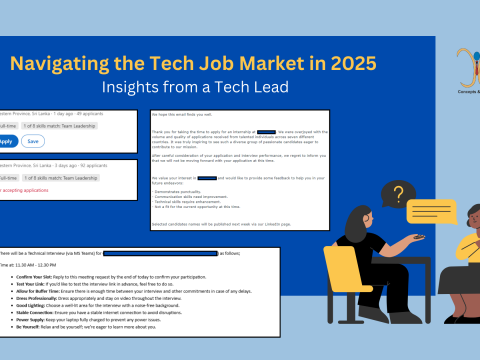- Have any questions?
- [email protected]
Mastering the Job Interview: Common Interview Questions and How to Answer Them, Tips for Virtual Interviews

Mastering Appium Commands: A Beginner’s Guide to Automation Scripts
June 7, 2024
The Subtle Art of Not Giving a F*ck: Embracing a Counterintuitive Approach to Life
June 12, 2024Job interviews are pivotal moments in the job search process, offering you a chance to showcase your qualifications and personality. Preparing for common interview questions and understanding the nuances of virtual interviews can significantly increase your chances of success. This article provides strategies for answering common interview questions and offers tips for acing virtual interviews.
Common Interview Questions and How to Answer Them
1. Tell Me About Yourself (Common Interview Question that is most asked)
How to Answer: This is often the first question and sets the tone for the interview. Provide a brief summary of your professional background, highlighting key achievements and experiences relevant to the job. Tailor your response to the job description, and keep it concise.
Example: “I have over five years of experience in digital marketing, specializing in social media strategy and content creation. At my last job, I managed a team that increased our social media engagement by 40% in one year. I’m excited about this opportunity at XYZ Company because of your innovative approach to digital campaigns.”
2. Why Do You Want to Work Here?
How to Answer: Research the company beforehand and mention specific reasons why you’re interested in the position and the organization. Focus on aligning your career goals with the company’s values and mission.
Example: “I admire XYZ Company’s commitment to sustainability and innovation. Your recent project on renewable energy solutions aligns perfectly with my background in environmental engineering and my passion for creating a greener future.”
3. What Are Your Strengths and Weaknesses? (Another Common Interview Question that is most asked)
How to Answer: For strengths, highlight skills that are relevant to the job and provide examples. For weaknesses, choose something non-critical and discuss how you’re working to improve it.
Example: “One of my strengths is my ability to analyze data and generate actionable insights, which has helped my team optimize our marketing strategies. As for weaknesses, I tend to be a perfectionist, but I’ve been working on delegating tasks more effectively to ensure timely completion of projects.”
4. Can You Describe a Challenge You’ve Faced at Work and How You Overcame It?
How to Answer: Use the STAR method (Situation, Task, Action, Result) to structure your response. Clearly outline the challenge, your approach to solving it, and the positive outcome.
Example: “In my previous role, we faced a tight deadline on a major project due to unforeseen technical issues. I organized daily stand-up meetings to track progress and reallocated resources to address the critical issues. As a result, we delivered the project on time and received positive feedback from the client.”
5. Where Do You See Yourself in Five Years? (Another Most Common Interview Question that is most asked)
How to Answer: Show that you have long-term goals and ambition, but ensure your answer aligns with the potential career path at the company.
Example: “In five years, I aim to have advanced into a senior project management role, where I can lead larger teams and more complex projects. I’m particularly excited about the growth opportunities at XYZ Company and how I can contribute to and grow with your team.”
6. Why Should We Hire You? (Common Interview Question that is most asked)
How to Answer: Summarize your key qualifications and how they match the job requirements. Emphasize your unique skills and experiences that make you a strong fit for the role.
Example: “With my extensive experience in digital marketing, proven track record of increasing engagement, and my passion for innovative campaigns, I am confident I can bring value to your team. My skills in data analysis and creative strategy align perfectly with the needs of XYZ Company.”
Tips for Virtual Interviews
1. Test Your Technology
Ensure your internet connection, webcam, and microphone are working correctly. Test the video conferencing software beforehand to avoid technical glitches during the interview.
2. Choose a Quiet, Well-Lit Location
Select a quiet space with good lighting where you won’t be interrupted. Position yourself so that the light source is in front of you, not behind, to avoid shadows on your face.
3. Dress Professionally
Dress as you would for an in-person interview. Professional attire not only looks good on camera but also helps you feel more confident and prepared.
4. Maintain Eye Contact and Body Language
Look at the camera, not the screen, to simulate eye contact with the interviewer. Sit up straight and use natural gestures to convey engagement and confidence.
5. Prepare Your Environment
Ensure your background is tidy and free of distractions. Close unnecessary programs on your computer to prevent notifications and potential distractions.
6. Use a Cheat Sheet
One advantage of virtual interviews is that you can have notes handy. Keep a cheat sheet with key points, questions to ask, and reminders about your accomplishments. However, use it sparingly to maintain a natural conversation flow.
7. Practice Active Listening
Focus on the interviewer’s questions and respond thoughtfully. Nod and provide verbal affirmations to show you’re engaged. Avoid interrupting and wait for the interviewer to finish before responding.
8. Follow Up
Send a thank-you email within 24 hours of the interview. Express your appreciation for the opportunity, briefly reiterate your enthusiasm for the role, and mention any key points discussed.
Mastering the job interview process involves understanding common questions and preparing thoughtful answers, along with adapting to the nuances of virtual interviews. By tailoring your responses to highlight your strengths and aligning them with the job requirements, you can make a lasting impression on potential employers. Virtual interviews, while convenient, require careful preparation to ensure a professional and polished presentation. With these tips, you’ll be well-equipped to navigate your next job interview with confidence and poise.





